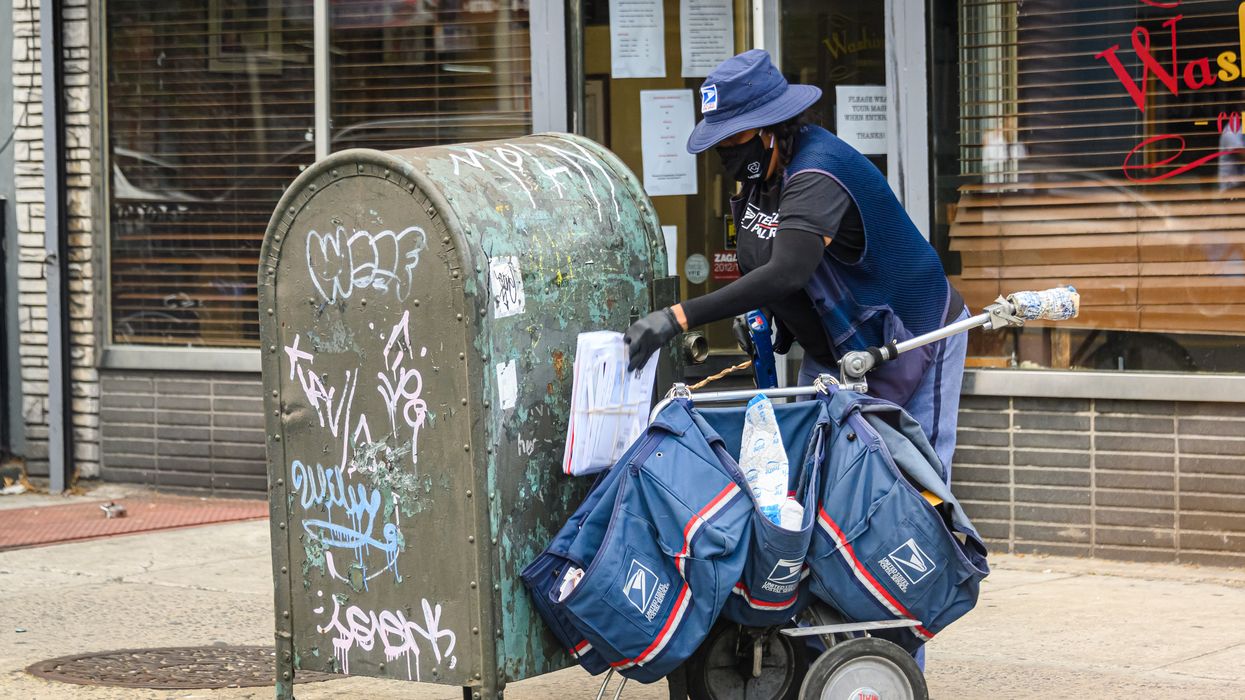Tony Dokoupil, co-host of "CBS This Morning," tweeted this claim last week, and it has been picked up by many other Twitter and Instagram accounts. There have been multiple reports of an impending crisis regarding the ability of the United States Postal Service to process election mail this fall, as thousands of voters switch to absentee ballots amid the Covid-19 pandemic. An internal memo obtained by The Washington Post even warns of slowed-down mail delivery at the direction of the newly appointed postmaster general. This all comes amid President Trump's criticisms of the Postal Service, calling it a "joke" during a bill signing in April and demanding the agency increase package rates to stay competitive.
Martha Johnson, a USPS spokeswoman, wrote in an email that the "Postal Service is committed to delivering Election Mail in a timely manner."
She continued: "Customers who opt to vote through the U.S. Mail must understand their local jurisdiction's requirements for timely submission of absentee ballots, including postmarking requirements. Voters must use First-Class Mail or an expedited level of service to return their completed ballots. We recommend that jurisdictions immediately communicate and advise voters to request ballots at the earliest point allowable but no later than 15 days prior to the election date. The Postal Service recommends that domestic, non-military voters mail their ballots at least one week prior to their state's due date to allow for timely receipt by election officials. The Postal Service also recommends that voters contact local election officials for information about deadlines."
While the USPS didn't explicitly say ballots require a 14-day "round trip," the agency is urging voters to mail ballots seven days before their state's postmark date, which is often Election Day. The Postal Service sent a letter to election officials in May detailing mail requirements for these absentee ballots.
According to the Election Assistance Commission, about 332,000 mail-in ballots weren't counted in 2016 for a variety of reasons, including missing the deadline.


















 Senate Committee on Commerce, Science, and Transportation ranking member Sen. Maria Cantwell (D-WA) (R) questions witnesses during a hearing in the Russell Senate Office Building on Capitol Hill on February 10, 2026 in Washington, DC. The hearing explored the proposed $3.5 billion acquisition of Tegna Inc. by Nexstar Media Group, which would create the largest regional TV station operator in the United States. (Photo by Chip Somodevilla/Getty Images)
Senate Committee on Commerce, Science, and Transportation ranking member Sen. Maria Cantwell (D-WA) (R) questions witnesses during a hearing in the Russell Senate Office Building on Capitol Hill on February 10, 2026 in Washington, DC. The hearing explored the proposed $3.5 billion acquisition of Tegna Inc. by Nexstar Media Group, which would create the largest regional TV station operator in the United States. (Photo by Chip Somodevilla/Getty Images)
